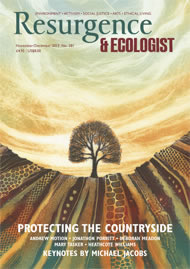Meme Wars opens with a few lines and a couple of equations from what I take to be an elementary economics textbook. These are the last equations you will find here. The lines are about how a firm can maximise its profits. This sets the tone for the whole book, the aim of which is implied by the subtitle, The Creative Destruction of Neoclassical Economics.
Memes refer to the idea propounded by Richard Dawkins that packets of cultural and intellectual knowledge, and ways of viewing the world, get passed down from generation to generation – just like genes. But which economic memes are passed on? And should they be?
This large book, edited by Kalle Lasn of Adbusters, contains dozens of pertinent contributions from economists and others. Some of the writers are well known, including a couple of Nobel laureates; some are less so, though no less relevant for that. There are well-argued critiques of economics as it is conventionally taught, and there are sections offering a wide variety of viable alternatives in terms of the environment, finance and banking, energy, inequality and governance – all written lucidly and without unnecessary jargon.
For non-economists a little background might be in order. What is neoclassical economics? And what’s the problem with it?
In the 19th century, economists were mostly ‘political economists’. They were at least as concerned with questions of value and justice as they were with the pure ‘mechanics’ of things economic – Adam Smith included. But they wanted to make their discipline into a science. And the way they chose to do this was by borrowing a mathematically stripped-down version of Newtonian mechanical physics.
The problem with all this is at least threefold. First, the real economic world doesn’t work like a machine. The real world is made up of lots of interacting players: individuals, firms, governments, and so on. The way they make decisions and respond and react to each other is varied. The outcomes usually just ‘emerge’ from this complexity and can’t be precisely predicted in advance. The intellectual foundations of neoclassical economics are shaky. Meme Wars explains much of this with great clarity.
Second, neoclassical economics analyses and studies things as though they took place in some sort of hermetically sealed container. Energy, raw materials and labour are just ‘inputs’ in the production process, rather than the physical and living environment. The consequences of this way of viewing the world can be seen all around us, in terms of environmental degradation, species destruction and social injustice.
Finally, there is the question of ethics and values. When I was first an economics student, 40 years ago, a distinction was made between ‘positive’ economics and ‘normative’ economics. The subject of our discipline was supposed to be predominantly the former. It was concerned with factual processes, while normative economics was meant to deal with questions of choice and making value judgements. But the fact is that positive ‘neoclassical’ economics, while claiming to be value-free, is actually as value-ridden as anything else. It’s just that the implicit and, many would say, inequitable values are hidden or denied.
Meme Wars is explicitly aimed at students entering university. It’s meant to provide a type of antidote and to prompt students to ask questions of their professors about the validity and relevance of what they are being taught. Doing so might not make them popular, but redundant paradigms never disappear until enough people question them, or, to put it bluntly, the paradigm’s defenders die out.
At first I was a little disconcerted by the lavishly designed and illustrated ‘coffee-table book’ appearance of Meme Wars. It’s very postmodern. But actually, like all coffee-table books, it can be dipped into at will, and every part can be read with profit on its own.
Economics isn’t a ‘dismal science’. For decades, centuries even, economists have developed other, more valid and more equitable, ways of understanding and explaining the economic world. Meme Wars shows this wonderfully. It really is a book that should be on every university’s first year economics reading list. It could make a difference. But Meme Wars can be read by anyone with an interest in the ailments of our world.






